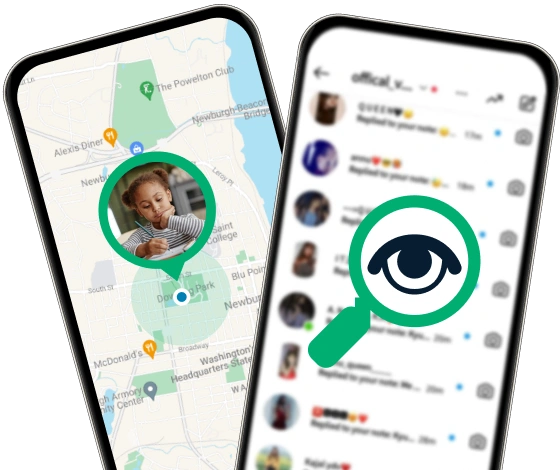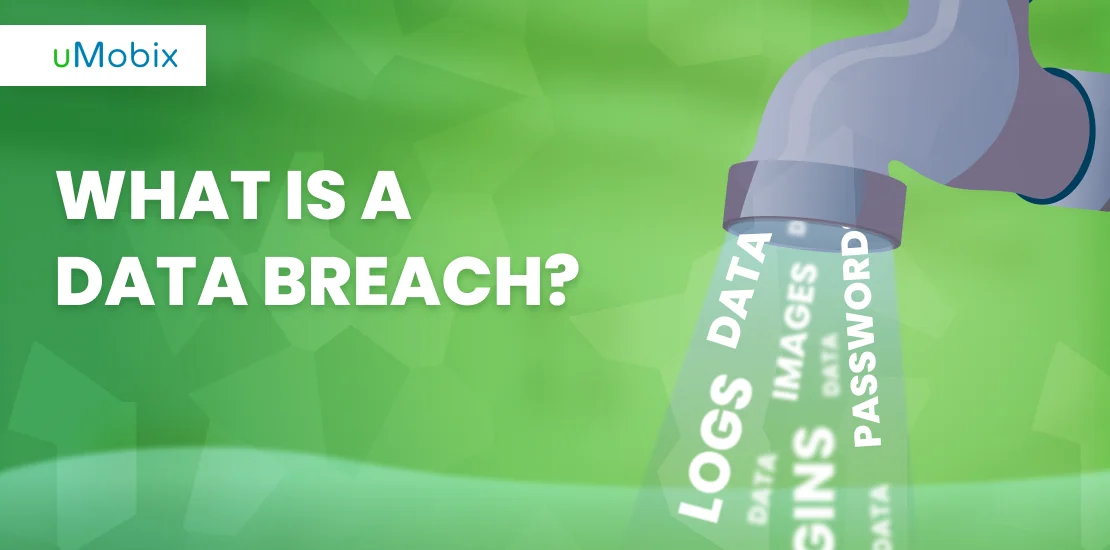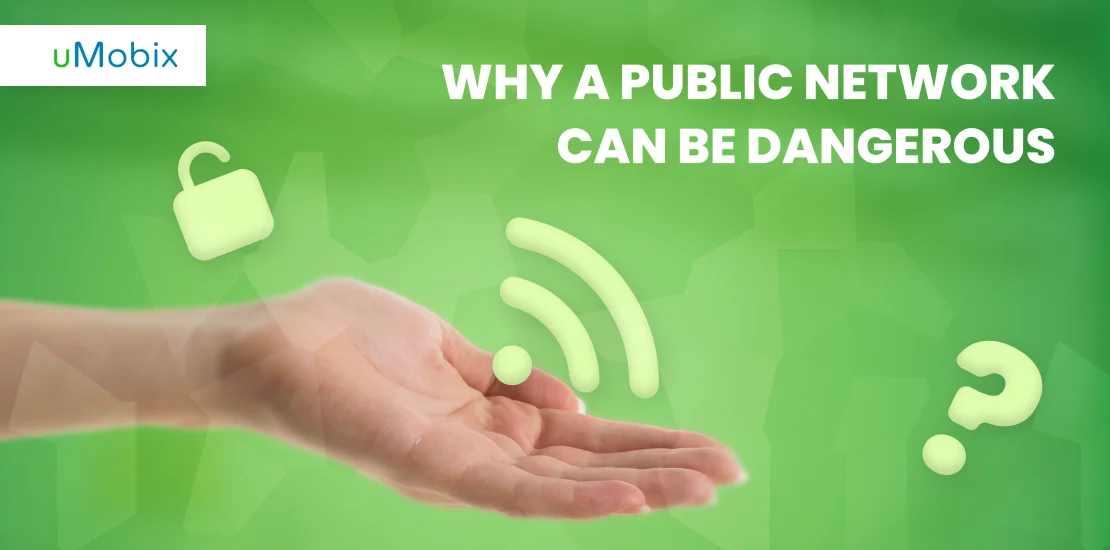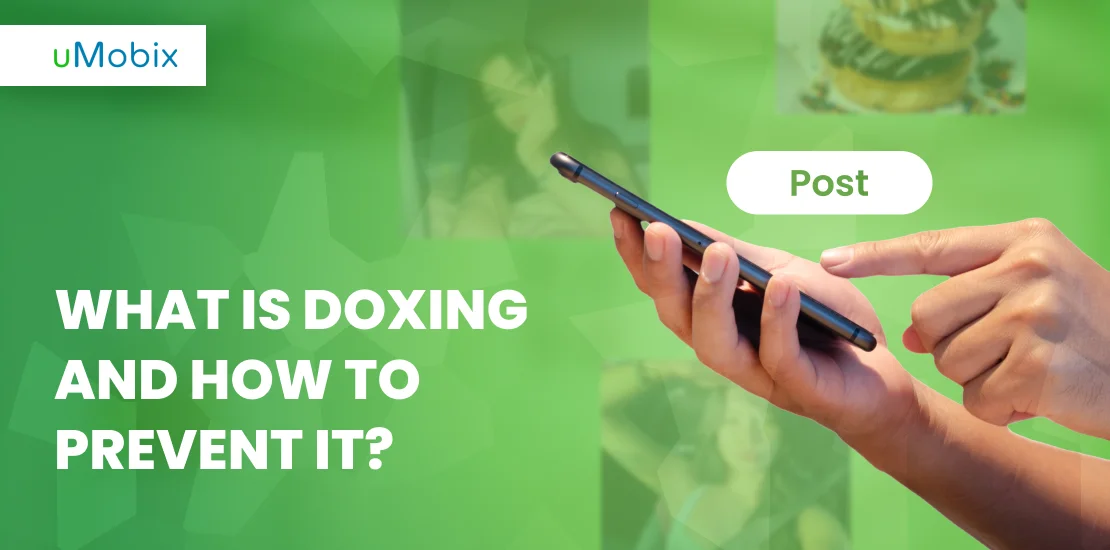In simplest terms, a data breach is when someone unauthorized to view sensitive data can do so. Usually, this results in the hacker stealing or selling the data, leading to severe consequences for the victims of the breach.
Why Do Data Breaches Occur?
There are many reasons for a cyber breach. They tend to be due to malware attacks but can also be because of other reasons. Here are 5 common reasons data breaches occur.
- Unpatched Vulnerabilities
While updating your operating system and software can be annoying, it’s crucial to eliminate vulnerabilities hackers can use to break into your system. If left unpatched, it can lead to a database breach.
- Human Mistakes
When there’s data theft, it can be due to human error. For instance, a person may accidentally send sensitive data to the wrong person or have a compromised password because it is easy to guess. In addition, a person may fall for a phishing scam, which can lead to their information being stolen as a result.
- Insider Leak
This reason is a more malicious version of human error. Someone in a business leaks valuable information to someone willing to buy it or use it for their own purposes. While it’s easier for a company to figure out who the insider is, it may be too late by then.
- Malware and Viruses
While many people have the latest security updates, hackers constantly create new malware to get past those cybersecurity measures. These viruses can lead to stolen data, and typically if malware gets on a computer, it can easily extract the data from the device, including passwords and emails.
- Stolen Devices
Finally, when sensitive information is kept on a physical device such as a phone or computer, a breach of data security can occur simply because a device fell into the wrong hands. This can happen in public, but it could also happen due to a home or company invasion.
Malicious Methods Used to Breach Data
Knowing the methods people use to steal your data can help you be vigilant if you want to prevent a data leak. Here are some standard methods that hackers use to breach data.
Phishing
Phishing occurs when a hacker creates an email or a website that resembles a legitimate site, such as Amazon, PayPal, or similar websites, and usually asks the user to enter their login information. Therefore, when you spot an email, text, or website that looks a little off, you should be skeptical and only view the website through legitimate links.
Another type of phishing, smishing, involves using text messages. However, the principle is the same.
Keyloggers
A keylogger records every keystroke a person types, making it easy to record sensitive data such as passwords, credit card numbers, and more. Often, a keylogger can be installed by a hacker on a computer or phone without a person knowing.
Password Guessing
Perpetrators of data breaches often target individuals with weak passwords. Sometimes, it’s easy for a hacker to know a person’s password if they know anything about their personal lives. If your company has a simple password, it may be time to change it to something more complex.
Malware or Virus
A hacker may use malicious software (malware) or a computer virus to steal or corrupt data. A person with solid virus protection software can usually avoid this, but the best hackers may be able to circumvent virus protection.
Hacking Another Organization
To steal a person’s data, a hacker may not even hack you. Instead, they may hack a company where your information is connected. For example, a hacker could infiltrate an online store and leak the information of people who have accounts.
What Can Criminals Do with the Data They Steal?
A data breach is performed by cybercriminals who can have specific intentions. While these intentions can change from criminal to criminal, most of them have the following intentions when they steal someone’s data.
- A criminal may steal data to sell it through the Dark Web. For example, they may steal your PayPal account and sell it to someone else.
- Criminals may use stolen data to compromise a person’s identity. For instance, they may steal someone’s identification to apply for an apartment under their name.
- A criminal may use the data as a form of ransom. For example, they may tell a company they will return any stolen data for a price.
- Criminals may steal company data to leak it to the public or use it for their purposes. For instance, a rival company could steal secrets and use them to its advantage.
No matter the reason, stolen data can lead to financial loss, and it can be challenging to get back your life when it occurs.
How to Prevent Being a Data Breach Victim
A data breach can strike anyone, but there are ways to reduce the chances of it happening to you. So let’s look at ways to prevent yourself from becoming a victim.
- Change your passwords every other month, use letters, numbers, and symbols, and avoid using common words. Many people will use a random series of characters, then keep it written down in a safe location.
- Keep your computer and software updated. You can get your computer to update automatically, but you should also manually check from time to time. Updating can patch any security flaws.
- Have the latest anti-malware software installed and run scans regularly. Then, if there’s something suspicious, quarantine it ASAP.
- If you are sent an email claiming to represent your bank or another company, and it demands that you enter your information via a link, it’s probably a phishing attempt. Contact the people it claims to represent to make sure.
- When looking at secure data, do not use a public WiFi network. In a public network, hackers can use it to infiltrate connected devices. If it’s urgent and there is no way out, use a VPN and avoid sharing your connection with others.
- On your devices, be sure to have a secure password and a way to erase the device data remotely if your device is stolen. Never put it in an area where it’s likely to be stolen.
- Always use secure links, which are URLs that begin with HTTPS//. An insecure link could be prone to hackers and other malicious attacks.
- Do not overshare on social media. Even if your Facebook is private, there is still a chance that what you post there could lead to your precious data hacking. Do you really need people to know everything you are doing in your life?
- If your data is stolen, contact your banks and the authorities ASAP. The sooner you let them know, the less a hacker can use your data.
How Can uMobix Help?
If you don’t want your data hacked, one way to prevent it is to install the phone tracker uMobix. Mainly, uMobix works well for employers’ phones or a child’s phones. With uMobix, you will receive alerts if a person has a conversation with a bad actor, and you’ll be able to see to whom the user is giving information.
If you’re interested, check out the uMobix free trial and try out the software. Chances are, you will find it helpful.
Conclusion
So, to answer the question of what is a privacy breach, it’s when your precious data is stolen and used for nefarious purposes. By being vigilant, you reduce your chances of this happening.
FAQ
A data breach can occur if an employer gives private information because of a successful phishing attempt. Another example is if a company phone is stolen and its information is taken. Usually, a data breach leads to stolen data and a loss in revenue.
Phishing, or smishing in its SMS form, is the most common data breach. Phishing is when a person pretends to be an organization and requests personal information. For example, a phisher may pretend to be Amazon and ask someone to re-enter their credit card information for verification purposes.
If you see any suspicious charges on your credit card or bank, it may be a sign that you're the victim of a data breach. Another way is to look up your email on websites dedicated to tracking breaches and see if your email is tied to a breach.
The first step is to disconnect your devices from the Internet immediately. Then, you should contact your bank and the authorities. Remember, the sooner you take action, the more likely you can recover from it.

Latest posts
- 10 Best Apps for Parents to Monitor Social Media: 2026 Guide
- Complete List of Keywords to Block for Parental Control
- Does Telegram Notify Screenshots? Everything About Screenshot Detection
- How to Find Someone’s Deleted Instagram Posts: Complete Guide
- Family Tracking App by uMobix: Keep Loved Ones Safe




